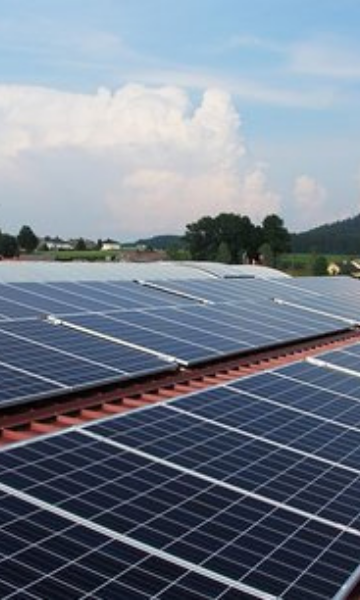The Smart City Office of the Brussels-Capital Region has been organising Smart Lunches for several months now. The objective of these sessions is for Brussels local authorities to discuss and be inspired by various "Smart" experiments conducted throughout the Region. Speakers from the quadruple helix - academia, business, public authorities and citizens - take turns as speakers. Feedback on the sixth event dedicated to energy communities can be found below!
After an introduction by Bernard Clerfayt, Brussels Minister for Digital Transition, the first speaker, Régis Lambert, Head of Renewable Energy at Brugel, began by explaining the concepts of "individual self-consumption", "collective self-consumption", "renewable energy communities" (which focus only on renewable energy), and "citizen energy communities" which concentrate on electricity and potentially non-green energy. This was a necessary foundation for understanding energy sharing and its social, economic and environmental benefits - such as democratising energy, creating dynamic economic ecosystems around communities, and unlocking solar potential.
Mr Lambert then explained the legal basis for these communities. While the structural framework is currently being drafted - and the objective is to adopt the ordinance by the end of 2021 - a derogatory framework allows Brugel to grant parallel derogations for a fixed period of time and for a limited geographical area. Régis Lambert recalled that a map of current projects can be found at
https://projets-innovants.brugel.brussels and stressed the enormous potential in the Brussels-Capital Region for collective self-consumption for all co-ownerships.
The second speaker, Boniface Nteziyaremye, presented the Greenbizz.energy project, a BeCircular winner and a real vehicle for social integration. This energy community, co-developed in partnership with Greenbizz, Citydev, CSTC and with the facilitation of Sibelga, brings together 20 companies with varied consumption profiles located in the production workshops at Greenbizz. These are grouped around 943 solar panels producing 203 MWh per year to collectively maximise the self-consumption of locally produced energy. To facilitate the management of the community by participants, WeSmart offers access to its digital platform, which allows the monitoring of production and its consumption. WeSmart has also created the legal entity that organises this community, which for this project is in the form of an ordinary partnership. Mr Nteziyaremye took the opportunity to explain WeSmart's well-established work cycle: identification of participants, analysis of benefits, creation of the community and, finally, the proposal of a platform for managing the energy community.In the future, WeSmart plans to extend the project to the entire Tivoli district of Laeken and thus further expand the community's diversity.
The presentations by the local authorities started with Quentin Paelinck, Alderman for Public Works in Ganshoren, who spoke about the first energy sharing pilot project started at Nos Bambins school in Ganshoren. It is a unique place because, during weekends and summer holidays, the building does not consume the electricity produced by its voltaic panels. In all, the project, which took a year to set up, brings together 15 stakeholders, two producers (the school and a private company) and 12 "consumer" meters supplied with local electricity. The creation of a renewable energy community (in the form of a non-profit association) was made possible thanks to the support of various players such as Brussels Environment, Sibelga and the granting of a derogation by Brugel. What about results? While the self-consumption rate was 18% before the project, by February 2021 it had reached 64%. The volume of electricity consumed from the supplier also decreased by 44%. In this respect, Mr Paelinck stressed the catalytic and educational role of the municipality with its traders and inhabitants.
Lastly, Christophe Verbiest, Director of the real estate department at Foyer Anderlechtois, presented Shakespeare, the pilot project for the collective self-consumption of green energy at the Foyer, which aims to install 200kwc of solar voltaic panels. The aim is for this locally produced energy to be used by the various tenants and then re-invoiced to them at low cost. Mr Verbiest recalled that the project had been in incubation for almost ten years, but the framework was not yet defined at that time. At this stage, the Foyer has not yet obtained an exemption, however a request has been submitted to Brugel. The buildings' tenants had, until now, shown little interest in getting involved in such a project, since the consumption of the communal areas was extremely low, despite the enormous photovoltaic potential. This very promising project, in collaboration with Luminus, was able to start in earnest in February 2020; the signing of contracts, the electrical acceptance of the photovoltaic system and the community kick-off are scheduled for October 2021.
Conclusion: This Smart Lunch featured a wide range of smart and innovative projects, including energy efficiency and citizen participation! If you could like to participate in the next meetings in September, please contact Céline Vanderborght without delay!
